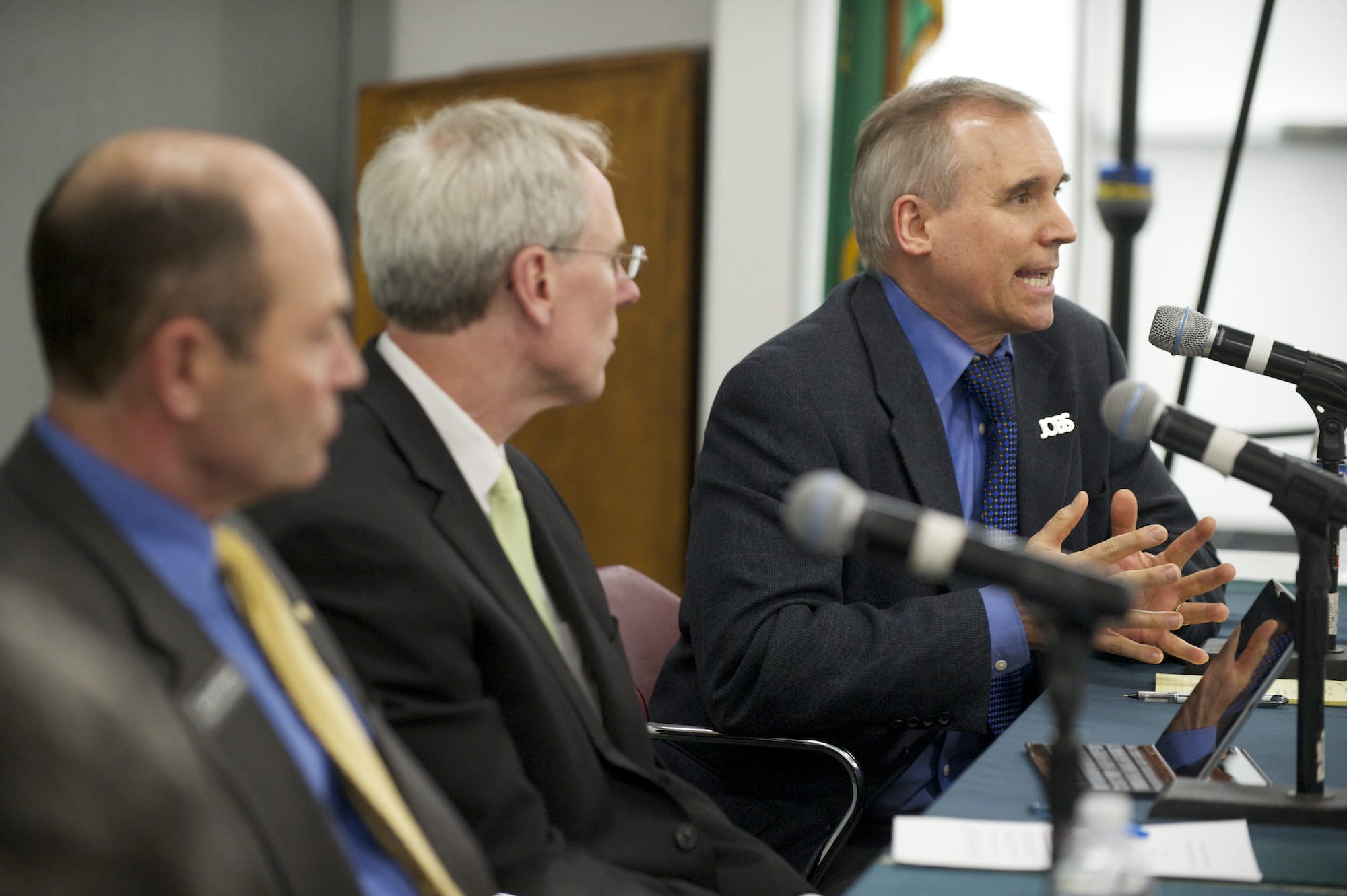Removing barriers to businesses is necessary to move Clark County beyond its role as a bedroom community to Portland, Commissioner David Madore said Tuesday, at a forum sponsored by Friends of Clark County.
A the county completes its 20-year comprehensive land-use plan and sets policies intended to spur business growth, Madore cautioned that being too regulatory will “kill the quality of life” in the county and price both people and businesses out.
The comments came on the day commissioners approved a 20-year jobs goal for the county, picking the most aggressive model that projects 91,200 new jobs by 2035. He said the county could do plenty to welcome new businesses.
“If your deterrents are high,” he said, “then what you’re doing is driving your business elsewhere.”
The commissioner wasn’t alone behind the microphone. County Auditor Greg Kimsey and Finance Director Mark Gassaway also took part in the forum, called “Clark County’s Budget, Present and Future: What Can We Expect from Our Taxes?”
Friends of Clark County is a nonprofit advocate for “smart growth” in the county. And in what at times resembled a civics lesson, the speakers explained their roles within county government and working within the budget. As Kimsey told the handful of people at the Clark Public Utilities building, “The budget in government is everything. What the budget does is set policy.”
The policy with the most interest Tuesday was the county’s program to waive the fees developers pay on commercial projects.
Madore, a vocal proponent of the program, touted it as a fresh pro-business idea that made Clark County more competitive. He said the county was closely monitoring the program to see if it was working. That monitoring effort includes requesting tax projections from businesses taking part in the program.
“The fee waiver is key to setting the atmosphere for businesses in Clark County,” Madore said. “We compete with all the other communities, especially along the West Coast, to determine where is the best place to launch or grow your business.”
Kimsey, who’s criticized fee waivers in the past, didn’t voice the same concerns at the forum, simply saying that the program was approved by the county commissioners and was being implemented and monitored primarily by the Department of Community Development.
When asked by an audience member if the county was checking whether the businesses participating in the fee waiver program were providing realistic tax projections, Kimsey said it wasn’t the county’s responsibility to ensure businesses do that.
Madore was even more direct.
“Do we verify the numbers? No we don’t,” he said.
But, he said, that’s not the point of compiling them.
“The numbers are helping us guesstimate the revenue they can generate if they’re accurate,” he said.
He added that he and fellow Commissioner Tom Mielke, who also voted for the program last June, didn’t want to imply that the new businesses were taking shape solely because of the waivers, saying that was “causation.”
“We can’t claim that,” he said. “We can only draw a contrast between what we’re doing and what other jurisdictions are doing.”



